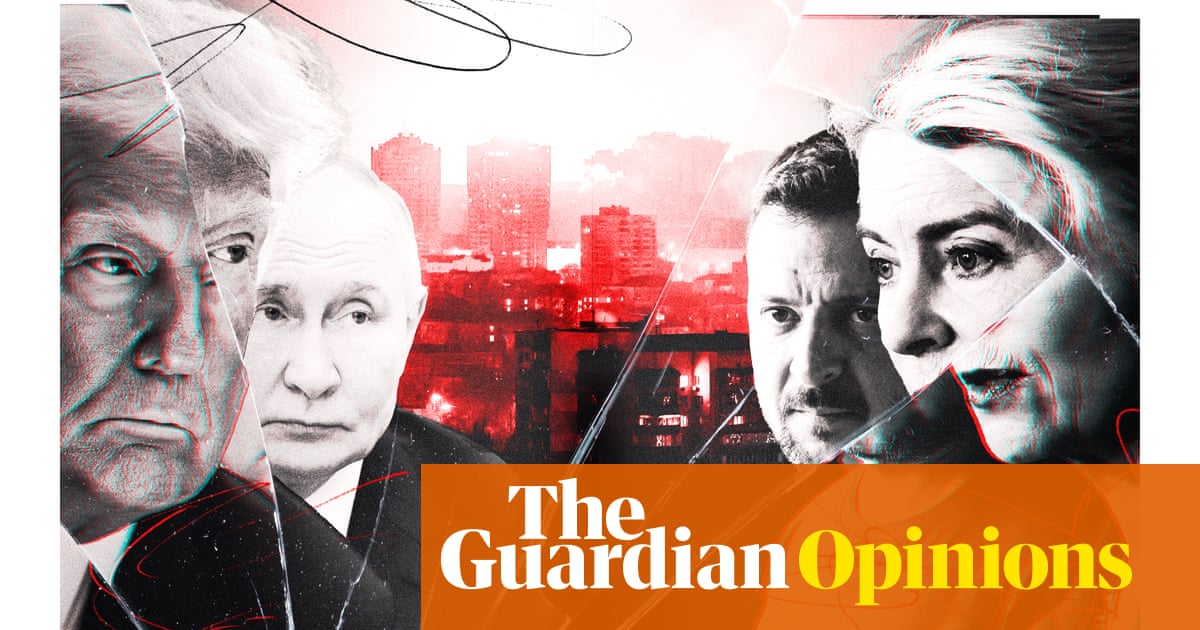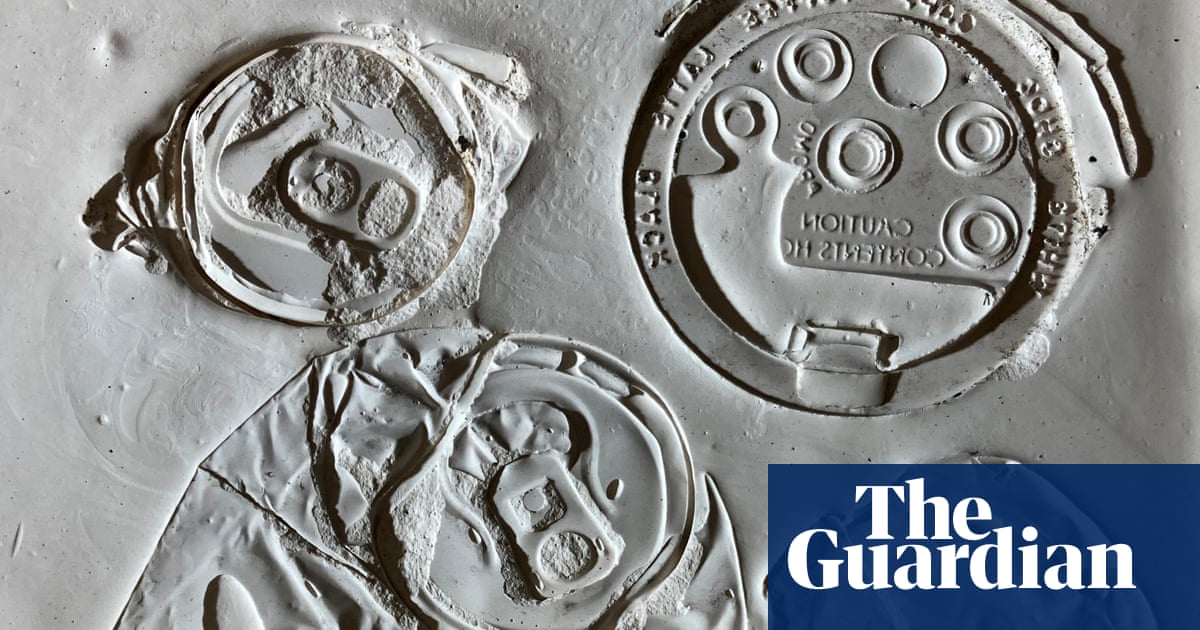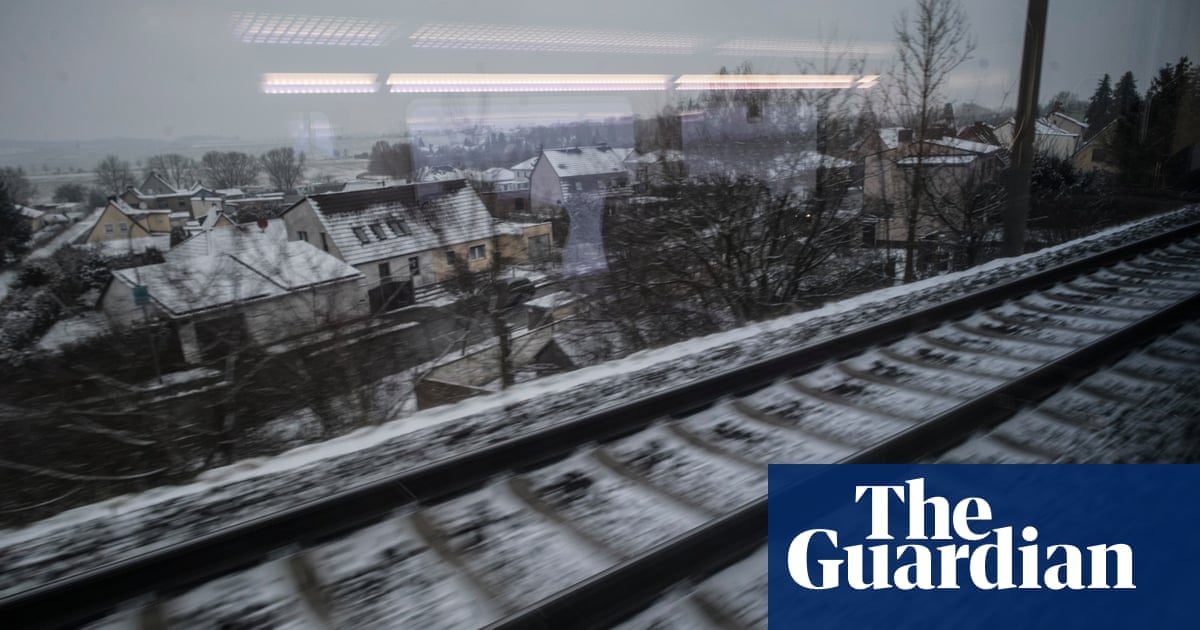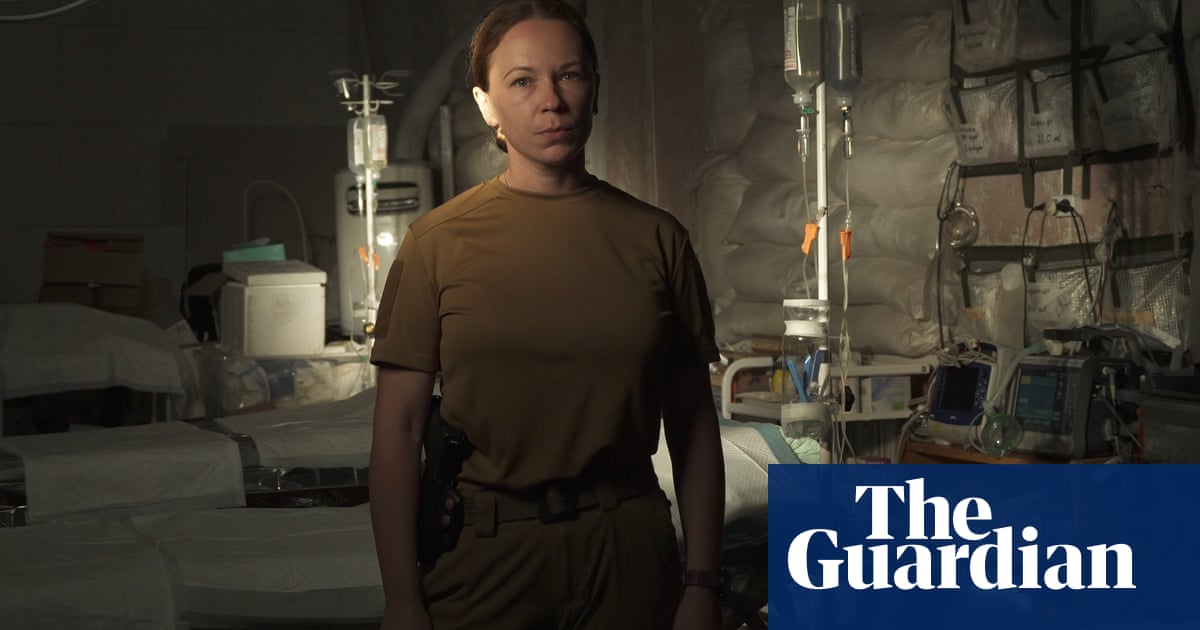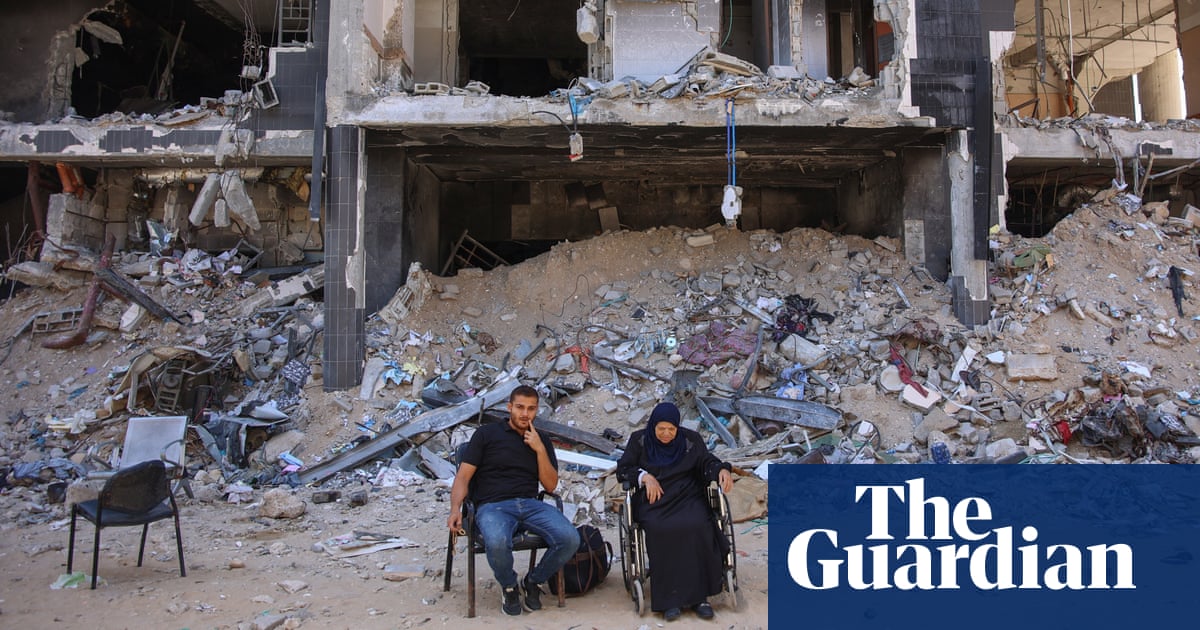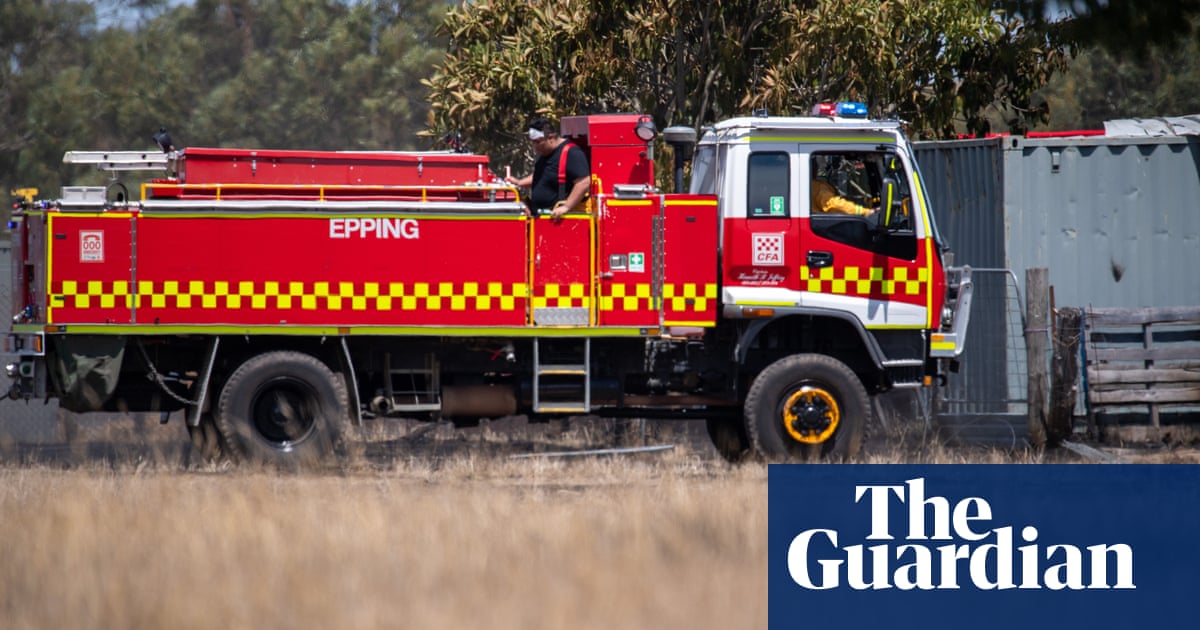Hezbollah’s chief spokesman has been killed by an Israeli airstrike on Beirut, as Israel intensifies its air offensive in Lebanon despite ongoing indirect negotiations for a ceasefire.
Mohammed Afif, who has been the public face of Hezbollah for months, was killed in a strike on offices of the Ba’ath party in Ras al-Nabaa, central Beirut. The attack in the busy residential area came without warning, and appeared to damage to neighbouring buildings.
The son of a prominent Shia cleric, Afif managed the Hezbollah-run TV network Al Manar before taking over as head of the militant Islamist group’s media relations. Since the killing of Hassan Nasrallah, the longtime leader of Hezbollah, on 28 September, Afif became one of the group’s most prominent officials, holding several press conferences in Beirut.
Analysts said Asif was the first official with such a role to be killed by Israel, as all previous targets had military or senior leadership posts. Until Sunday, there had been no Israeli airstrikes on central Beirut since mid-October.
Witnesses saw four bodies at the scene of the strike, which took place a day before Lebanon was expected to deliver its response to a US-delivered ceasefire proposal. There was no official word on the exact death toll.
“I was asleep and awoke from the sound of the strike, and people screaming, and cars and gunfire,” said Suheil Halabi, a local resident. “I was startled, honestly. This is the first time I experience it so close.”
In Gaza, civil defence workers confirmed 30 deaths from an Israeli strike that hit a five-storey residential building in Beit Lahiya, northern Gaza.
An Israeli military spokesperson said strikes were conducted on “terrorist targets”.
“We emphasise that there have been continued efforts to evacuate the civilian population from the active war zone in the area, in parallel with efforts to expand the humanitarian area in al-Mawasi … The IDF [Israel Defense Forces] is precisely operating and is doing everything possible to avoid causing harm to civilians,” they said.
Evacuation orders on leaflets distributed on Sunday told civilians to leave northernmost parts of Gaza immediately.
“This is an early warning before the attack! You are in a dangerous battle zone. For your safety, go urgently,” the leaflets read.
Israel has repeatedly accused Hamas of using civilians as human shields, a charge the militant Islamist group denies. There was no independent confirmation of the death toll.
The airstrikes in Gaza on Sunday came amid Israeli offensives in Beit Lahiya and the nearby towns of Beit Hanoun and Jabaliya. Witnesses said much of the area was obscured by smoke and shelling on Sunday.
The tight siege of the three towns and a series of evacuation orders has raised widespread concerns that Israel intends to force civilian populations to leave the northernmost parts of Gaza and will not permit their return. Humanitarian conditions there are described as “apocalyptic” by aid workers, with very limited food, water, medicine and communications.
In a statement, Médecins Sans Frontières accused Israel of following a plan proposed by former senior Israeli military officers to forcibly displace or kill Palestinians in northern Gaza.
“The way the ongoing offensive in the north is being waged … reinforces the idea that we are witnessing the execution of this plan,” the NGO said.
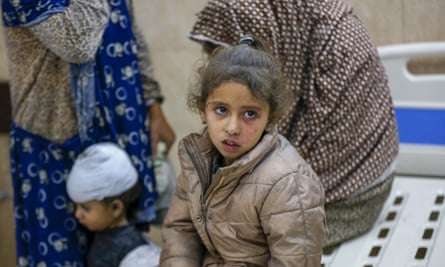
Israel denies any such intention and says the offensives, launched last month, are an effort to prevent Hamas from regrouping in areas that have been cleared in previous multiple rounds of combat.
Earlier on Sunday, an Israeli airstrike killed at least 10 people in the Bureij refugee camp in central Gaza, when a missile hit a house, medics said.

On Saturday evening, an Israeli airstrike on a UN-run school sheltering displaced people killed 10, the Palestinian news agency Wafa reported. Israel’s military said it struck a command centre of the militant Islamist organisation in the compound.
The latest strikes in Lebanon came as Israel’s media reported that Israeli troops had advanced as far as three miles (5km) from the contested border.
Israeli media said the IDF were deliberately “blurring” the extent of its operations in Lebanon, even though most aims set out by the Israeli government had been achieved.
“The IDF won’t admit this, but the Northern Command completed the mission it was given by the political leadership two weeks ago, on schedule. That mission was to remove the threat of an … invasion of the Galilee,” wrote Yoav Zitun in the Israeli newspaper Yedioth Ahronoth.
Israeli attacks also targeted buildings in Beirut’s southern suburbs, a Hezbollah stronghold, on Sunday after warnings for residents to evacuate.
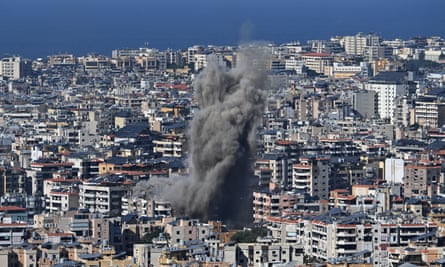
There were also reports of strikes in several other areas of the country, including the port city of Tyre.
In a statement, the Israeli military said the attacks were “intelligence-based” and targeted Hezbollah command centres and infrastructure.
Israel launched its offensive against Hezbollah in Lebanon to allow an estimated 60,000 Israelis to return to homes near the border evacuated in the first days of the war for fear of attack and bombardment by the militant Islamist group.
Although Hezbollah’s capabilities have been significantly reduced, it has continued to fire rockets and missiles into Israel since the beginning of the conflict in Gaza.
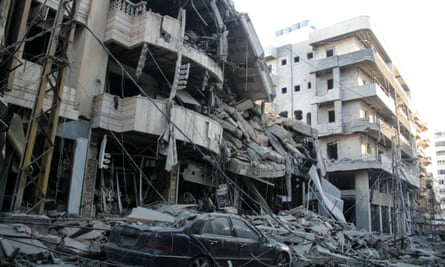
Israel’s military said on Saturday that Hezbollah had fired more than 80 projectiles across the border that day. Most were intercepted or did not cause injuries but a synagogue was struck and two civilians were wounded in a “heavy rocket barrage” by Hezbollah on Haifa, northern Israel’s largest city. Hezbollah said it fired missiles at five Israeli military facilities in Haifa and its suburbs.
More than 3,400 people have been killed in Lebanon by Israeli fire according to the Lebanese health ministry. Israel’s military said a soldier died in combat in southern Lebanon on Friday.
By the beginning of November, more than 60 people have been killed in northern Israel and the occupied Golan Heights by Hezbollah attacks in almost 13 months of the conflict.
Hezbollah, which is backed by Iran, has previously linked any ceasefire in the north to an end to the Israeli offensive in Gaza, though some analysts now believe the group may consider a separate deal.
A copy of a draft proposal presented by the US earlier this week was handed over to the speaker of Lebanon’s parliament, Nabih Berri, who has been negotiating on behalf of Hezbollah, according to a Lebanese official. The proposal is based on UN security council resolution 1701, which ended the last Israel-Hezbollah war in 2006.
The multi-front conflict began after Palestinian militants from Hamas and other armed groups launched a surprise attack from Gaza into southern Israel in October last year, killing about 1,200 people – mostly civilians – and abducting 250 others.
About 100 hostages are thought to be still inside Gaza, about a third of whom are believed to be dead. Israelis rallied again in Tel Aviv on Saturday night to demand a ceasefire deal to return the hostages.
The Gaza health ministry said 43,799 people have been confirmed dead in Gaza since the war began. More than half of identified casualties have been women or children.

 3 months ago
60
3 months ago
60



